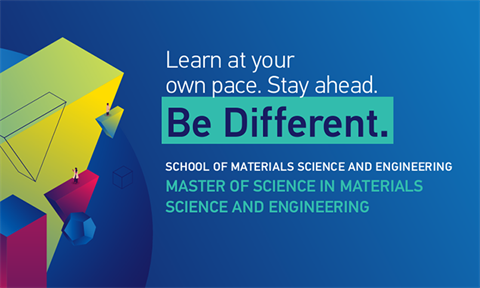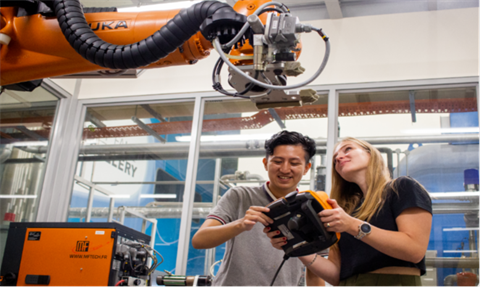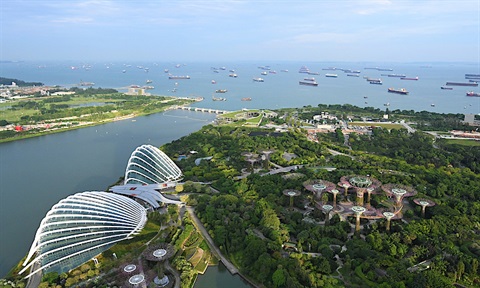Sustainability Education
Education is the key enabler of creating a sustainable world for future generations. At NTU, we seek to incorporate sustainability education for students at different stages of their learning journey, through relevant courses or programmes, to provide them with the foundation and practical tools for understanding the concepts of sustainability and applying them to solve real world problems.
Undergraduate Programmes
Since 2021, we have introduced a sustainability course in our common interdisciplinary core curriculum for all undergraduates. This course aims to develop students with the critical skills to collaborate across disciplines to systematically analyze major sustainability challenges from the perspectives of society, economy, and the environment. Students will learn to address sustainability issues from different viewpoints and at different scales. They will then use these skills to discuss and propose solutions for sustainability challenges facing Singapore and the world.
Bachelor of Engineering in Environmental Engineering with Second Major in Entrepreneurship
The Second Major programme provides Environmental Engineering students with entrepreneurship competency and broaden their understanding in enterprise and innovation.
The Bachelor of Engineering (Hons) degree in Environmental Engineering with a Second Major in in Entrepreneurship is jointly offered by the School of Civil and Environmental Engineering and NTU Entrepreneurship Academy.
This Second Major programme equips Environmental Engineering students with entrepreneurship competency and broaden their understanding in enterprise and innovation. Students are required to participate in the Experiential Programme and the 20-week Overseas Entrepreneurship Programme (OEP) or a 20-week local Professional Internship with start-ups or venture capital firms.
- 4 years direct honours programme
- Accredited and globally recognised programme
- 20 weeks Professional Internship
- Students can opt to do Specialisation in Civil Infrastructure and/or Specialisation in Coastal Protection
Singapore-Cambridge GCE 'A' Level
- Pass in H2 Level Mathematics, and
- Pass in H2 Level Biology/ Chemistry/ Computing/ Physics, and
- Pass in H1/ ‘O’ Level Physics1 or equivalent
Polytechnic Diploma
- A diploma from one of the local polytechnics,
- Relevant diplomas will be considered for exemption from selected courses,
- For a list of acceptable local diplomas, please refer here.
International Baccalaureate Diploma
- Pass in Higher Level Mathematics, and
- Pass in Higher Level Biology/ Chemistry/ Computer Science/ Physics, and
- Pass in Standard Level Physics2 or equivalent
NUS High School Diploma
- Major CAP of 2.0 in Mathematics, and
- Major CAP of 2.0 in Biology/ Chemistry/ Physics, and
- Overall CAP of 2.0 in Physics3 or equivalent
International & Other Qualifications
- Pass in Senior High School Level Mathematics, and
- Pass in Senior High School Level Biology/ Chemistry/ Physics, and
- Pass in Junior High School Level Physics4
NOTES
1 Pass in H1 Level / ‘O’ Level Physics is only applicable to applicants who have not read H2 Level Physics. Applicants with a good grade in 'O' Level Combined Science [(Physics and Chemistry) or (Physics and Biology)] will be considered.
2 Pass in Standard Level Physics is only applicable to applicants who have not read Higher Level Physics.
3 Overall CAP of 2.0 in Physics is only applicable to applicants who have not majored in Physics.
4 Pass in Junior High School Level Physics is only applicable to applicants who have not read Senior High School Level Physics.
Applicants with only a H1 Level / ‘O’ Level pass in Physics are required to read 'PH1012 Physics A' instead of 'PH1011 Physics' in their first semester. Computer Engineering and Computer Science students will read 'SC1013 Physics for Computing' instead.
International Students
International students must have completed at least 12 years of general education, or will be taking Year 12 national examinations in the year of application in order to be considered for admission. In addition to fulfilling the minimum entry requirements, applicants must also satisfy the minimum subject requirements. For further details, please refer here.
INFORMATION & ENQUIRIES
Admission matters are handled by the Office of Admissions. For further information and enquiry, please contact the Office of Admissions.
Students with outstanding Singapore GCE ‘A’ Level, International Baccalaureate (IB) and NUS High School Diploma results may be eligible for exemptions from up to 3 selected first-year courses, more details could be found via the following link.
Students with outstanding Poly Diploma results may be eligible for exemptions from selected courses.
We prepare graduates to make significant impact through enterprise and innovation. The Second Major in Entrepreneurship (SMiE) is introduced to:
- Equip NTU students with fundamental entrepreneurship competency and broaden their understanding of enterprise and innovation;
- Enrich them with an entrepreneurial mindset to deal with uncertainties in a VUCA world and be the drivers of technology innovation;
Provide them with hands-on experiences in technopreneurship through experiential learning approach and a 20-week local/overseas internship with start-ups, venture capital firms, or other entrepreneurship related organisations;
- Expand their entrepreneurial network and be part of the ecosystem, and
- Enable students to seize opportunities from new technologies and support them to venture into technology start-ups.
Besides the Core Programme Requirement, students are required to take:
- Compulsory Courses (12AU)
- Elective Courses (at least 13 AU)
- Compulsory Experiential Component (10AU)
Further information on Second Major in Entrepreneurship can be found on this page.
Besides career opportunities in environmental sustainability for Environmental Engineering graduates, the Second Major in Entrepreneurship provides students with skills and network to pursue careers related to entrepreneurship. Examples include careers related to entrepreneurship, consultancy in innovation management, and those related to funding/launching of innovative products or R&D projects.
Our graduates have been in diverse exciting jobs in various sectors.
There are more than 40 minors available. Some popular minors are as follows,
- Minor in Business
- Minor in International Trading
Full list could be found via the following link
- Engineering
- Sustainability
- Full-time
- Single Degree with 2nd Major
- AY2021/2022
- College of Engineering
- School of Civil and Environmental Engineering
- Bachelor of Engineering in Environmental Engineering with Second Major in Business
- Bachelor of Engineering in Environmental Engineering with Second Major in Society & Urban Systems
- Double Degree in Bachelor of Engineering in Environmental Engineering and Bachelor of Social Science in Economics
- Bachelor of Engineering in Environmental Engineering with Second Major in Data Analytics
- Bachelor of Engineering in Environmental Engineering
- Bachelor of Engineering in Environmental Engineering with Second Major in Sustainability
- Bachelor of Engineering in Environmental Engineering
- Bachelor of Engineering in Bioengineering
- Bachelor of Engineering in Chemical and Biomolecular Engineering
- Bachelor of Science in Environmental Earth Systems Science with three specialization options (Geosciences, Ecology, Society)
- Bachelor of Science in Environmental Earth Systems Science and Public Policy and Global Affairs
- Bachelor of Science in Chemistry and Biological Chemistry with Second Major in Environmental Science
- Bachelor of Science in Biological Sciences
- Bachelor of Science in Physics & Energy Studies and Education
- Bachelor of Arts in Geography
- Second Major in Sustainability
- Second Major in Food Science and Technology (Open to Bioengineering, Chemical and Biomolecular Engineering, Chemistry and Biological Chemistry, Biological Sciences)
- Second Major in Society and Urban Systems (Open to Civil Engineering, Electrical & Electronic Engineering, Environmental Engineering, and Mechanical Engineering)
- Minor in Environmental Sustainability
- Minor in Sustainable Urban Planning
- Minor in Environmental Management
- Minor in Environmental Humanities
- Minor in Science, Technology and Society
- Minor in Science of Learning
- Minor in Chemistry and Biological Chemistry
Postgraduate Programmes
NTU is pioneering a new push in PhD education that will tear down barriers and drive research into areas that need a multi-disciplinary approach. In keeping with global trends and needs, students at the Interdisciplinary Graduate Programme at NTU will concentrate on two or more disciplines, instead of one. Today, fresh thinking is urgently needed to mitigate many global challenges, not least in environmental sustainability, the creation of viable alternative energy solutions, and many other wide-ranging and complex issues.
- IGP-APRU-Global Sustainability, Waste & the City
- IGP-Earth Observatory of Singapore (EOS)
- IGP-Singapore Centre for Environmental Life Sciences Engineering (SCELSE)
- IGP-Energy Research Institute @ NTU (ERI@N)
- IGP-Nanyang Environment & Water Research Institute (NEWRI)
- IGP-NTU Institute for Health Technologies (HealthTech NTU)
- GIS and Geospatial Learning in Sustainability
Sustainability has become a key theme in higher education globally. It is also by now a core component of the revised MAHE programme. The spatial thinking tools and applications that you will learn in GIS will help you to better comprehend sustainability issues as well as devise solutions for such problems. This course will enable you to apply GIS vis-a-vis cross-disciplinary perspectives in the Humanities with respect to the Southeast Asian context.
- Global Cities
This course aims to introduce the urban ways of life and appreciate the emergence of global cities beyond the Global North. The course will also include various empirical and grounded experiences of global cities around the world, especially on issues related to urban liveability, sustainability, water, housing and other urban infrastructure issues.
- Environmental Planning and Management
This course examines selected environmental challenges in urban areas and explores planning solutions and management options to avoid or mitigate such problems. Multidisciplinary, integrated solutions that follow principles of sustainability are emphasized.
- Discourses in Sustainability
The environmental and social impacts of global climate change been increasingly emphasised. Accordingly, there is a need to equip learners with the history of sustainability studies, alongside current debates and possible future trajectories of this discipline. This knowledge will help learners better understand situations related to climate change and also opportunities in fostering environmental sustainability.
- Field Inquiry in Sustainability
Fieldwork strengthens our classroom concepts and gives the opportunity to understand the world through inquiry- based learning. This course will equip learners with both the qualitative and quantitative skills to collect and interpret data in ways that can help to inform environmental solutions for a more sustainable future.
- Second Major in Sustainability
- Aspiring students with a passion for Sport Science & Management (SSM) now can complement their degree by undertaking a Second Major in Sustainability. This Second Major in Sustainability within the SSM degree programme equips students with the knowledge and skills to address pressing environmental and social challenges faced by the sports industry.
- MBA (Sustainability & Innovation) Track
- Master by Research in Earth and Environmental Science
- Doctor of Philosophy in Earth and Environmental Science
- Joint NTU-TUM Master of Science in Green Electronics
- Master of Engineering (Research) in Civil and Environmental Engineering
- Doctor of Philosophy in Civil and Environmental Engineering
- Doctor of Philosophy in Biological Sciences
- Master of Science in Civil Engineering
- Master of Science in Maritime Studies
- Master of Science in Smart Manufacturing
- Master of Science in Power Engineering
- Master of Science in Materials Science and Engineering
- MBA (Strategy & Innovation)
- Master of Science in Finance
Continuing Education
NTU Continuing Education offers a wide range of programmes and courses for working professionals that are curated from various disciplines and conducted via different learning platforms. Aligning with the Government’s concerted effort to build sustainability as a way of work, play and life, that is the Green economy, specialised topics such as Sustainability Design, Energy Management, Environmental Management and etc. are created and delivered as either short courses or semester long courses, credit-bearing and stackable towards the relevant certificate(s) such as Specialist, Graduate and/or FlexiMasters certificate.














/enri-thumbnails/careeropportunities1f0caf1c-a12d-479c-be7c-3c04e085c617.tmb-mega-menu.jpg?Culture=en&sfvrsn=d7261e3b_1)

/cradle-thumbnails/research-capabilities1516d0ba63aa44f0b4ee77a8c05263b2.tmb-mega-menu.jpg?Culture=en&sfvrsn=1bc94f8_1)

7e6fdc03-9018-4d08-9a98-8a21acbc37ba.tmb-mega-menu.jpg?Culture=en&sfvrsn=7deaf618_1)



.tmb-listing.png?Culture=en&sfvrsn=1cb78cbd_1)
67c7970f-c11d-4403-b8eb-7d52eb23d471.tmb-listing.jpg?Culture=en&sfvrsn=e00131a8_1)






